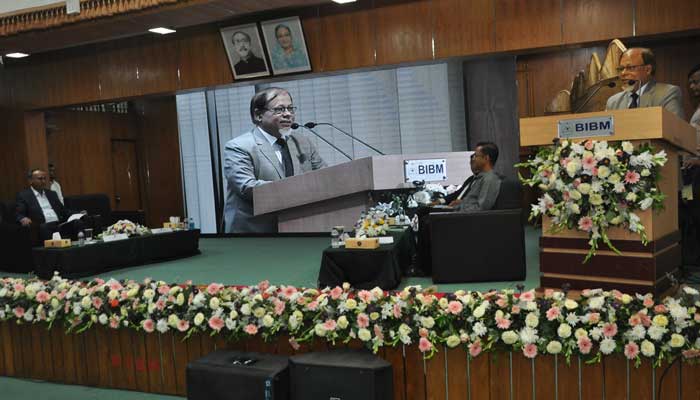Bad management of the banking sector has increased unethical practices in the sector. This unethical practice is one of the reasons for the failure of the banking sector in the last three decades. Many cases of bank failure have occurred only because of this.
This was said by the main speaker of the 21st Nurul Matin memorial lecture organized by BIBM in Mirpur of the capital, Professor Dr. Grameen Bank. AKM Saiful Majid.
The lecture titled 'Ethics in Banking' was held at Bangladesh Institute of Bank Management (BIBM) Auditorium. The main article was presented by former professor of Institute of Business Administration (IBA) of Dhaka University. Dr. Under the chairmanship of AKM Saiful Majid Bangladesh Bank Governor and BIBM Governing Board Chairman Abdur Rauf Talukder, BIBM Director General Dr. Md. Akhtaruzzaman. Former governor of Bangladesh Bank, deputy governor, managing director of public and private banks, officials of Bangladesh Bank, professors and researchers of different universities were present in the event.
Professor Dr. in the main article. AKM Saiful Majeed also said that practicing ethics in the banking sector has some inherent strengths and benefits. If there is a practice of ethics, the interest of all the stakeholders of the bank is protected. Especially the interests of customers are protected. Again, the interests of the bank owners are also protected. So practicing ethics at all levels is very important.
Bangladesh Bank Governor Abdur Rauf Talukdar said that the role of the Board of Directors, the Chief Executive Officer plays a role in the performance of the entire bank. Making independent and unbiased business decisions is essential in bank management. If it is possible to implement such practice, it can be considered as ideal. He said, in the light of international standard practices, the responsibilities and duties of those associated with the country's bank management have been separated.
Note that AFM Nurul Matin was born in 1928. He then joined the Research Department of the State Bank of Pakistan in 1951 as a First Class Officer. Later in 1963, his job was transferred to the operations department of the bank. He played an important role in building the banking infrastructure of Bangladesh since the development of Bangladesh. He played an important role in promulgation of Bangladesh Bank Order 1972 and Bangladesh Bank Nationalization Order 1972. His contributions to policy making for the betterment of the banking sector in the seventies and beyond are widely appreciated. He died in 1978. BIBM started this memorial lecture since 1998 to commemorate his contribution in banking sector.







